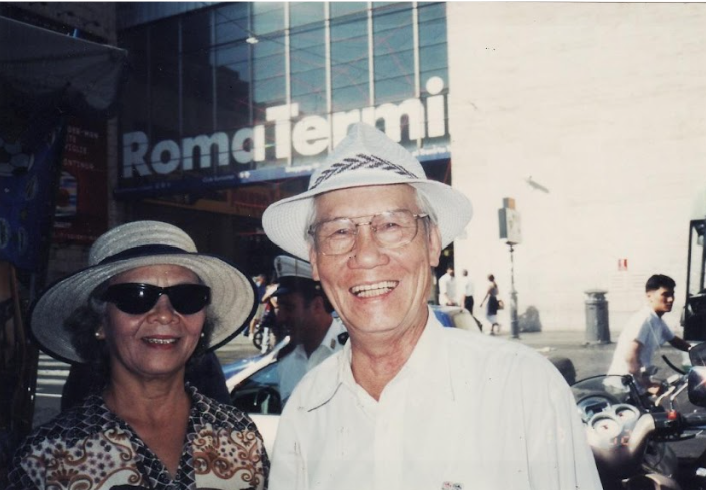Glimmer of Hope
- Danae Hendrickson

- Nov 11, 2024
- 3 min read
By Khamsone Sirimanivong, Vice Chair, Legacies of War

I felt deeply honored to attend the Defense POW/MIA (Prisoners of War/Missing in Action) Accounting Agency (DPAA) 2024 Vietnam War Annual Government Briefing this year in Washington, D.C.
When I met the families of missing soldiers on the first day, I knew in my heart that this was where I needed to be.
I sat down at the center table next to four different families, each representing a different missing American serviceman. These were people I had never met before. They were not part of my community back in Arizona. I didn’t know anyone whose family member was an American POW or MIA. They were all from the Midwest and were in their 70s or 80s, accompanied by a son or daughter close to my age. They were polite, friendly, and welcoming, but there was a layer of sadness and emotion that I couldn't quite grasp.
Before the conference started, families were given an opportunity to share memories of their loved ones in a “Remembrance Ceremony,” an absolutely beautiful tradition. That's where I learned that many of the MIA soldiers went missing in Laos. The stories were heartbreaking, and most of the families expressed frustration and anger over the lack of progress in bringing their loved ones home. They were still suffering.
The gentleman sitting next to me, a tall, handsome man in his late 70s, had brought his daughter along. He stood up to speak.
He talked about his missing brother. They were only a year apart and inseparable—the best of friends, like twins. They had even enlisted together. He was the last to see his brother, who had been shot down in Laos in 1966. He shared who his brother was—not just as a soldier, but as a son and brother; his jokes, his favorite things, a childhood story, their closeness, and how much he missed him and just wanted him home. He cried. They all cried. Dang it, I cried.
Some of these families have been suffering for over five decades—longer than I have been alive.
During the morning break, my seatmate showed me a photo of himself and his brother before he went missing. The black-and-white photo showed two handsome young men, barely of drinking age and younger than my oldest son, in uniform with their arms tightly linked, bright smiles on their faces. I asked him some questions about his family's case.
He said that even after five decades, there were still no clues to his brother's whereabouts, but he stressed that he would not give up the search. His daughter was now helping him, and he believed that she and possibly her children would continue looking when he was gone.
On the second day, our fellow trustee, Jessica Pearce Rotondi, spoke about her own family’s MIA experience, which began before she was born, and how they eventually found closure. She shared her personal journey, her cathartic visit to Laos, her discovery of Legacies of War, and the thousands of families still impacted by the war 50 years later. Her words of courage and determination, her family’s intergenerational journey, and her advocacy connected so deeply to our work; they were emotional and empowering.
My tablemate, whose shoulders, voice, and countenance had been heavily drenched in despair over the past 24 hours, turned to me with the most earnest expression and a glimmer in his eyes. It was hope.
Hope is the very essence that drives our mission.
This man and his missing brother, who had been strangers to me only a day before, had become family. I realized that all of this—the missing loved ones, what was happening in the room, the families, the children, and the grandchildren—this too was a legacy of the American Secret War. Americans are truly and fundamentally connected by the American Secret War. Some of the areas where these servicemen went missing are heavily contaminated by UXO, making them inaccessible for decades.
Now more than ever, our advocacy work to clear these impacted areas and end the use of cluster munitions is imperative and indisputable.



